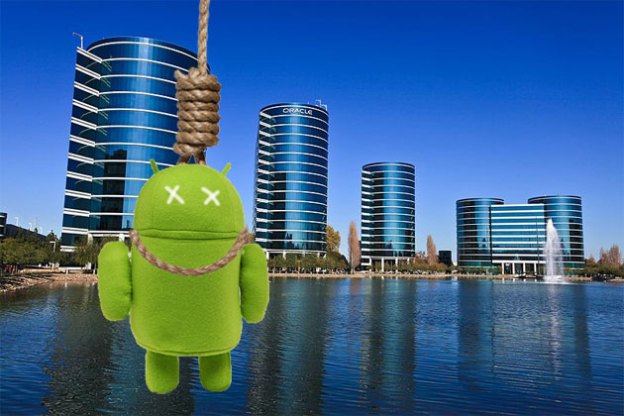
The U.S. Patent and Trademark Office has issued findings on two of Oracle’s Java-related patents at issue in the database giant’s case against Google over the Java virtual machine included in Android. Perhaps most significantly, the USPTO rejected Oracle’s patent claims on U.S. patent number 7,426,720, which has generally been considered one of the most important patents in the case, in part because it’s one of the most-recently issued. The 720 patent won’t expire until 2025, meaning if Google were found to be violating it, Google could be on the hook for more than a decade.
The patent office’s rulings were reported in a joint court filing yesterday.
Although Oracle has until December 19 to appeal the USPTO’s finding, the patent office’s determination is a “final” ruling and likely represents the last word on Oracle’s claims of infringement on that particular patent.
There was some good news for Oracle: the USPTO also upheld Oracle’s claims on a related patent, 6,061,520. Both patents are related to mechanisms to improve Java performance.
Oracle is suing Google over the Java virtual machine included in the Android operating system. Google claims the Dalvik virtual machine it uses was engineered separately from Java technology developed by Sun (and now owned by Oracle); Oracle asserts it violates several Java-related patents and Oracle is due billions in damages as well as injunctive relief: forcing Google to stop distributing Android as long as it includes infringing technology. The threat of a possible injunction is a major cloud over Android’s future.
Other action in the Oracle-Google case yesterday included Judge William Alsup entering a tentative order regarding how damage claims in the case could be presented to a jury if and when the case eventually goes to trail. In the tentative ordered, the judge indicates he’s inclined to disallow key portions of Oracle’s assessment of the damages caused by Google’s alleged infringement on Java technology. However, he grant’s Oracle’s claims that infringement of any part of a patent would constitute infringement for the full value of the patent, and agrees with Oracle that a license for an incompatible version of Java would necessarily be higher than that for a compatible version—since even Google admits Sun (nor owned by Oracle) would never have licensed Google an incompatible version. Both parties have until December 20 to comment on the tentative order.
The case had been scheduled to go to trial on October 31, 2011, but scheduling conflicts and ongoing pre-trial proceedings effectively mean there is no definite start date for a trial.

